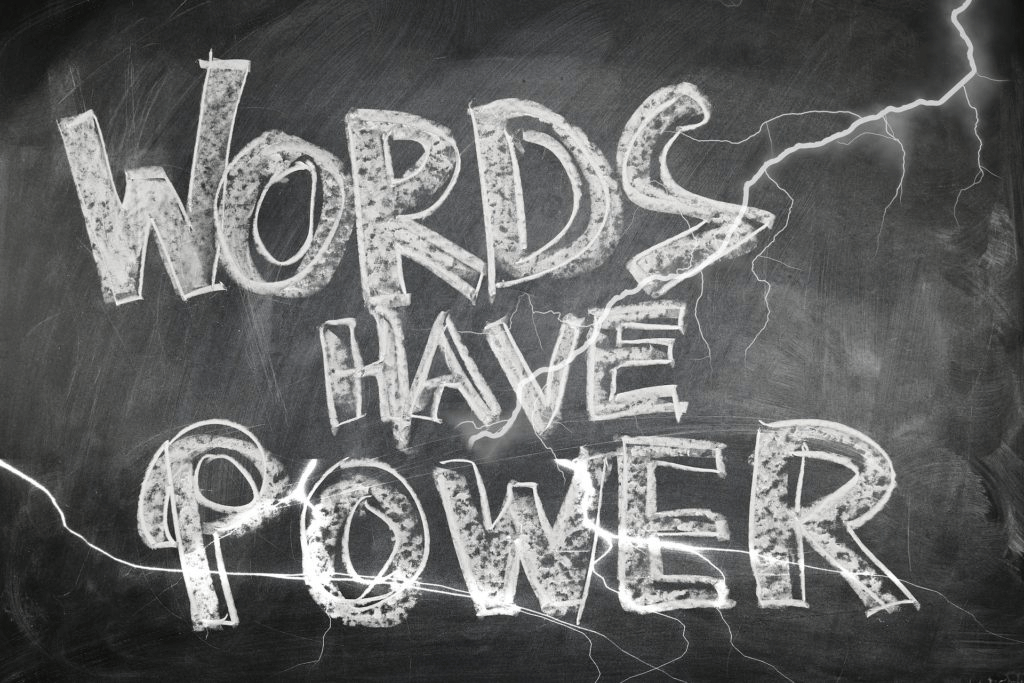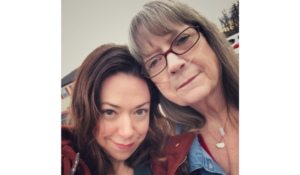 –by Whitney Norris [originally published on the Between You and Me blog of Little Rock Counseling on January 16, 2018. Welcome, Whitney, to the world of ATN!]
–by Whitney Norris [originally published on the Between You and Me blog of Little Rock Counseling on January 16, 2018. Welcome, Whitney, to the world of ATN!]
Thoughts. The ever-present voice in our head that we often only pay much attention to when there’s a problem. Even then, we often hand the bulk of the blame to our emotions and don’t give much thought to our thoughts- the litany of words constantly running through our minds. In this series of articles, I want to highlight a few key points and observations I’ve made about our thoughts from my personal life and my work as a therapist.
First, let’s talk thoughts “versus” emotions to clear a little air here. Unfortunately, somewhere along the way thoughts and emotions, to some extent, have been philosophically pitted against one other- as if they’re enemies or on different sides and we have to pick one. This simply isn’t realistic. If that were true, we’d all have to choose to be either emotionless robots or puddles. We can easily look at people on either extreme- of over-identifying with thoughts (more on that in a later article) or with emotions- and clearly see that they aren’t interacting with the world around them in a balanced, healthy way. But, even so, often when I ask someone about their emotions, I hear claims about preferring to be a “more rational person.” To me, that seems a bit like your physical therapist asking you how your legs are feeling and you tell her you prefer to concentrate on your arms. Both thoughts and emotions are on the same team. We need them both and they work best together, assuming we can separate them at all. As I wrote about in another article- “The Truth About Pain”– we can no more separate thoughts and emotions than we can fully separate emotional and physical pain. I bring this up to clarify that in this series when I’m writing about thoughts I’m doing so under the assumption and understanding that thoughts and emotions are not completely separate entities.
The next part in this series will focus on the topic of self-talk so here I want to only touch on this idea as it relates to the power of our words. It is hard to argue with the fact that words have power. Words play a part in much of what inspires us. Speeches by charismatic leaders have started revolutions (think Hitler, for example) and have converted people to religions or ideas they never considered (think brilliant authors like C.S. Lewis). They’ve convinced people to change entire perspectives. We see this on both the positive and negative ends of the spectrum. Either way, it’s difficult to deny that words have power.
I see this present itself in a few different, very significant ways in my work as a therapist. First, there have been countless articles, books, and research studies since the dawn of the field of counseling about the effects of our thoughts and internal beliefs on our mental health. In fact, there is an entire model of counseling called “Cognitive-Behavioral Therapy” (CBT) that posits that our thoughts directly impact our behavior. To put it simply, you can significantly change behaviors by changing the thoughts that drive them. Without getting into a theoretical debate regarding Cognitive-Behavioral Therapy, I believe most of us in the field of mental health counseling would agree that our thoughts (the beliefs we’re rehearsing and justifying in our heads) have a significant impact on our behaviors and our general well-being.
The second and probably most compelling way I see the power of words work in my counseling office is when they are spoken, often for the first time, by my clients. Sometimes I even feel a bit guilty about how much this continues to amaze me. As a therapist, I know that so much of the power of therapy lies in the clients’ courage to talk about and through things in a way they haven’t done before. I say I feel guilty at times because, deep down, I know this to be true- that there is something nearly magical about talking through something difficult and vulnerable in the presence of a non-judgmental witness (whether this is a therapist or a friend), especially for the first time. However, I’m still amazed each time I hear a client say, “Wow, I feel so much better/lighter/freer.” when I’ve essentially only sat as an actively-listening, empathetic witness. It’s such a beautiful part of how we are foundationally social creatures who, at our cores, are ready-built for relationships. Peter Levine (1997), the originator of Somatic Experiencing, speaks to this profound truth by stating, “Trauma is not what happens to us, but what we hold inside in the absence of an empathetic witness.” The opposite of this, then, also holds true. Hurt that happens in relationship can be healed in relationship.
Third, on a personal level, working as a counselor has changed my view regarding the impact of the spoken word. Before, honestly, I don’t know that I’d given a lot of thought to the topic. Yes, I was a sensitive kid so I was keenly aware of how others words could affect me but had never considered this on a more global level. I had given little thought to how my words affect others and, then even more so, how words have such power to heal, to harm, to stick to the insides of our heads, and to even lay the groundwork for lifelong beliefs about ourselves and the world around us. John Eldredge, author of Wild at Heart, speaks to the power of words by calling the detrimental words spoken over us, especially as children, as “wounds of the heart.” He goes on to explain that if we hear a “message” enough times, we’ll eventually start to believe it to the extent that I believe my eyes are green (they are, by the way). We can come to believe it so wholeheartedly or so unquestionably that we accept it as fact. Once we then accept something as fact, the tint of our worldview lense tends to confirm rather than deny this “truth.” My colleague Allan spoke to this beautifully in his recent article about how these messages can play a part in our parenting. Some of the most powerful moments I’ve been a part of in my therapy office have been those in which I have had the opportunity to speak truth to obvious lies. Sometimes it’s the first time that person has heard (or better yet allowed) someone else to speak against their wounds masquerading as “facts.” From time-to-time, I think about that original moment(s) when the wound was first inflicted. I wonder whether or not the speaker had any clue the impact they were having on that person (often a child) and whether they would have said what they did if they had known. In his wonderful little book The Four Agreements, Don Miguel Ruiz (2008) writes, “The human mind is like a fertile ground where seeds are continually being planted. The seeds are opinions, ideas, and concepts. You plant a seed, a thought, and it grows. The word is like a seed, and the human mind is so fertile!” This is true whether the words spoken are harmful or affirming. I believe it is best for us to remain aware of just how fertile this soil is in ourselves and each other.
Words are powerful. As I said at the beginning, our thoughts are essentially the words we’re constantly speaking to ourselves. While I won’t argue that spoken and written words may differ in some ways than our thoughts, I think the backbone of the matter is the same. Words are powerful, even if no one but us hears them. In part two of this series, we’ll delve into the huge impact these specific types of words can have on our overall well-being.
Eldredge, J. (2011). Wild at Heart: Discovering the Secret of a Man’s Soul. Harpercollins Christian Pub. Levine, P. A. (1997). Waking the Tiger. Berkeley, CA: North Atlantic Books. Ruiz, D. (2008). The Four Agreements. Thorndike, Me.: Center Point Pub.


